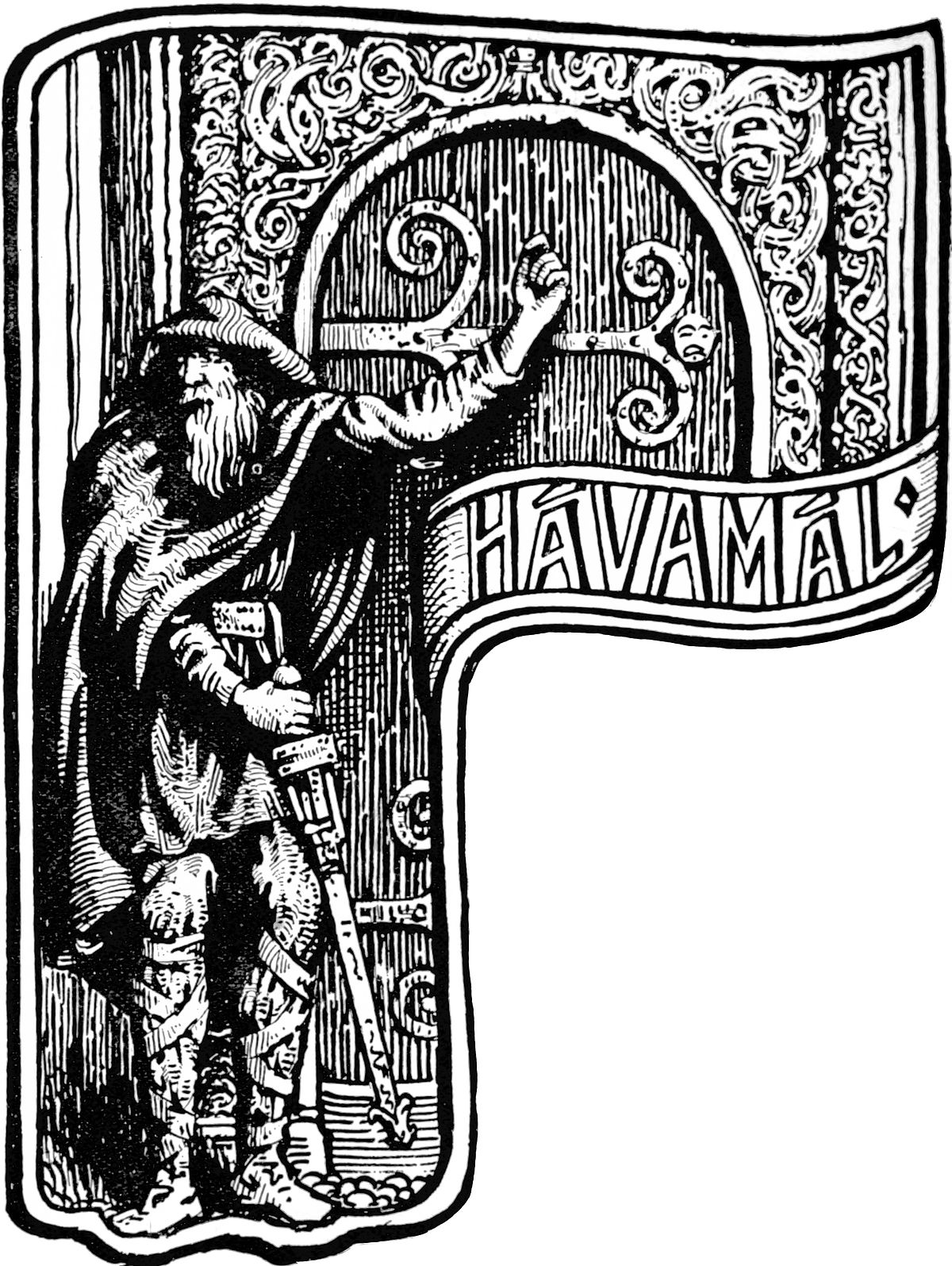the Nine Noble Virtues.

To understand the Nine Noble Virtues we must go back in time; more or less to the 7th and 9th centuries AD, when the poem Hávamál was written. The poem narrates a series of "commandments" that must be fulfilled to reach the wisdom. These rules governed Viking society as a moral symbol.
The first part talks about the hospitable behavior that must be had with the guests, that is, Gestaþáttr, the part of the guest. The next section, Loddfaphism, speaks of moral, ethical aspects; of behavior in general. The third part is dedicated to Rúnatal, or song of Odín, since it,s narrated from his point of view: Odin tells us the secret of his runes and how he reached his wisdom. Finally we have the Ljóðata, which speaks of the mysteries of Odín, the transmission of knowledge and a list and a guide of runic spells.
Well, once we know all this, let's talk about each of the virtues. All of them had a recognition within the Viking society; they were not standards to be followed, but rather a guide on how to behave.
The first of these is courage: "Be bold and courageous. Fight for your convictions. " To live up to your ethical beliefs it was clear that you had to be brave, possess the courage to move forward with a decision; the courage not only applied to the battlefield. However, it didn,t mean that you were doing stupid actions for your convictions, since you had to do it wisely.
The second is sincerity: You should be sure of yourself so that your beliefs and actions are true. Nor should you lie, for it was a cowardly act; living according to your beliefs, inventing would not be necessary. The truths of others, even if they were different, could not affect you; you just had to respect them. In short, you were sincere with yourself. However, you could lie if you got something good.
The next is honor, which is closely related to the principles of courage. Without honor you could not be a true warrior, not even a human. It is difficult to define this virtue, but basically it is the integrity or dignity of a person, and not only has to do with your reputation. As with courage, you showed your honor by clinging to your beliefs, which should never be influences by others.
Loyalty meant being faithful to your God, your beliefs (again), yourself, your family, and your friends. You should defend them regardless of the cost of it. If someone kills any member of the family, another member should seek revenge and put things back in their place. In this case revenge meant an obligation to and for your loved ones. You needed honor, loyalty and fidelity to be a true friend.
Discipline is important for living with your own moral code. The true warrior ignored political corruption as well as cultural norms. If the warrior wanted to live by his rules, he also had to control his actions. Some legal things are against the principles of his person, just as illegal things could be in favor. So, in the end, he had to develop a great self-discipline.
Hospitality: The warrior should treat others with respect and dignity. The Vikings believed that the gods visited people with human form, and if they were disrespectful to people, they could also be with the gods. The warrior is courteous to strangers because his code rules.
The industriousness meant plainly the willingness to work. You should work the best you can and do it with pride. The Vikings despised the vagrants who believed themselves to be gods. The warrior always worked hard for his family. Mediocrity was not accepted, everything had to be done with care and detail. They overestimated themselves, had high expectations in their work.
As an eighth virtue we have autonomy, that is, have the freedom and personality to act. It didn,t mean that the warrior liked solitude and didn,t enjoy the company of other people; it means that it does not depend on others to survive. Your main duty is to take care of your family, and you will never be comfortable if your well-being depends on something you can,t control. Relying on something or someone out of necessity was dangerous. For that very reason, it had to be independent and not influenceable.
Finally we have perseverance. You could not give up your mistakes before, because you had to go ahead, trying to improve; otherwise, the Nine Noble Virtues could not be applied. The warrior should not leave if something twisted; you couldn,t try to be a warrior, or you are or you are not. Stumbling meant learning and being convinced to do better next time.
With these virtues they taught children and tried to live according to their principles. In fact, Asatrú, a Neopagan religion based on the Norse gods, includes these virtues in its guidelines.
i like your post ... follow me and upvote my post
Thanks